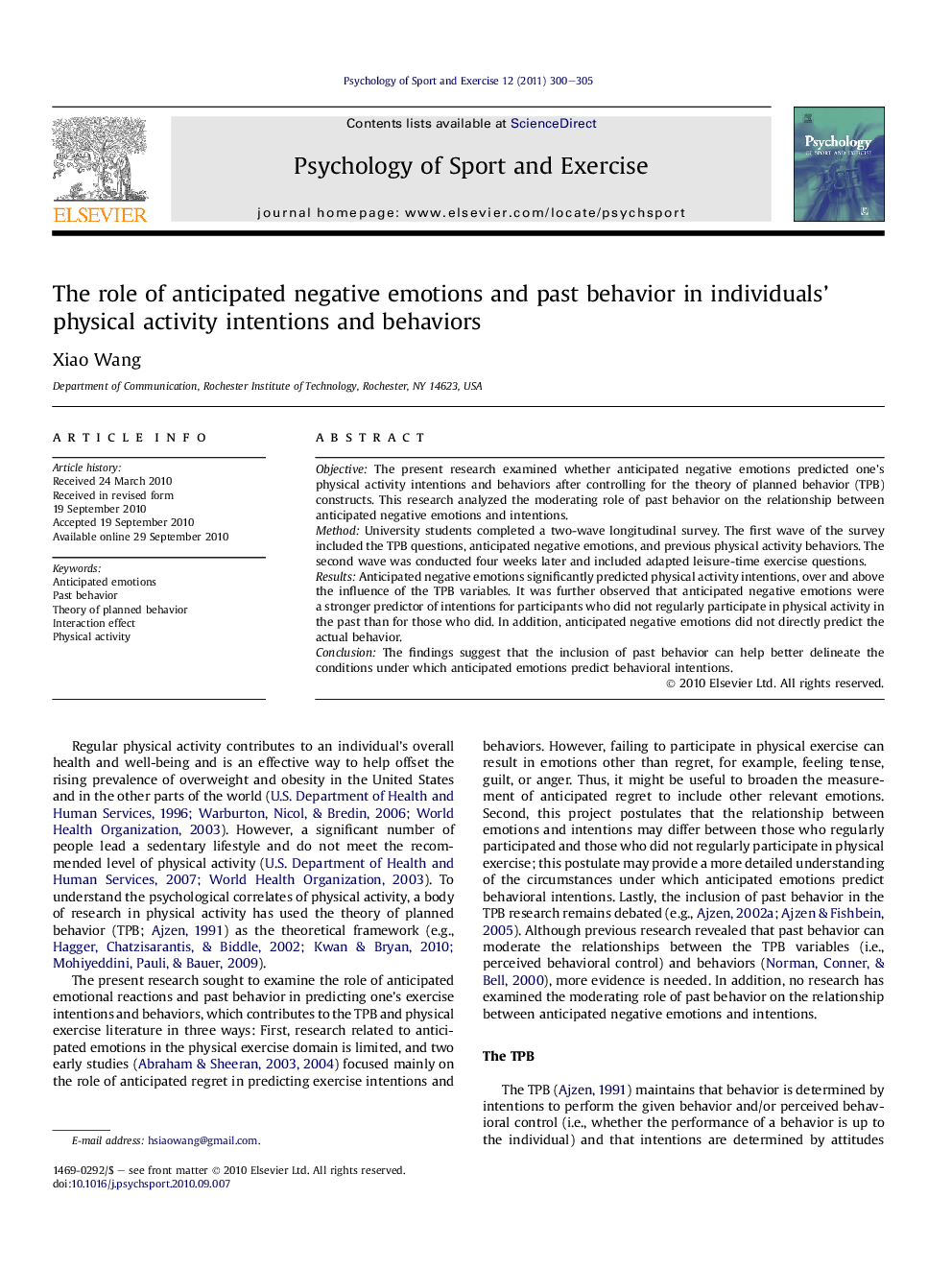| Article ID | Journal | Published Year | Pages | File Type |
|---|---|---|---|---|
| 894702 | Psychology of Sport and Exercise | 2011 | 6 Pages |
ObjectiveThe present research examined whether anticipated negative emotions predicted one’s physical activity intentions and behaviors after controlling for the theory of planned behavior (TPB) constructs. This research analyzed the moderating role of past behavior on the relationship between anticipated negative emotions and intentions.MethodUniversity students completed a two-wave longitudinal survey. The first wave of the survey included the TPB questions, anticipated negative emotions, and previous physical activity behaviors. The second wave was conducted four weeks later and included adapted leisure-time exercise questions.ResultsAnticipated negative emotions significantly predicted physical activity intentions, over and above the influence of the TPB variables. It was further observed that anticipated negative emotions were a stronger predictor of intentions for participants who did not regularly participate in physical activity in the past than for those who did. In addition, anticipated negative emotions did not directly predict the actual behavior.ConclusionThe findings suggest that the inclusion of past behavior can help better delineate the conditions under which anticipated emotions predict behavioral intentions.
► Past behavior moderated the anticipated negative emotion and intention relation. ► Anticipated negative emotions predicted intentions among infrequent exercisers. ► Anticipated negative emotions did not predict intentions among frequent exercisers. ► Anticipated negative emotions did not directly predict exercise behavior.
